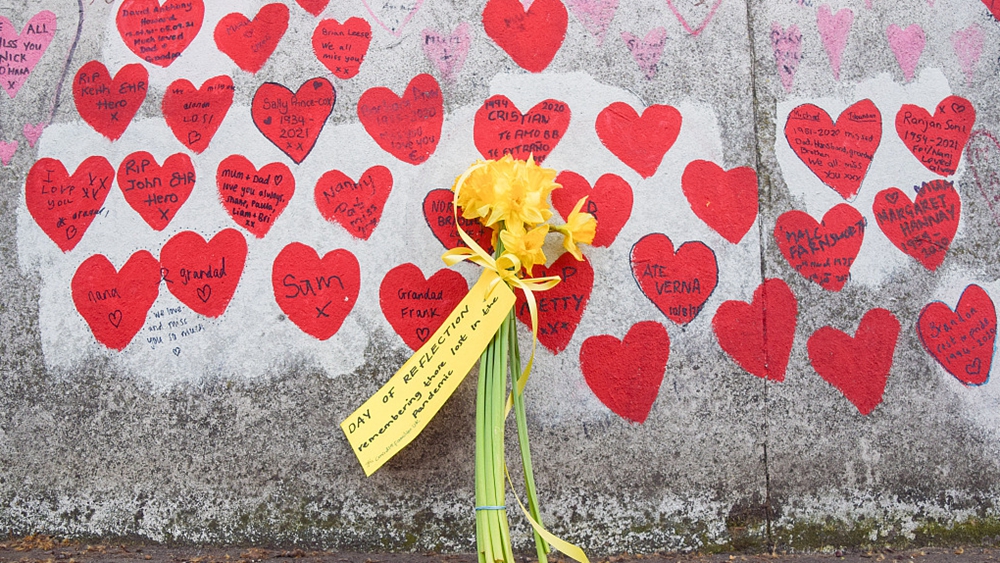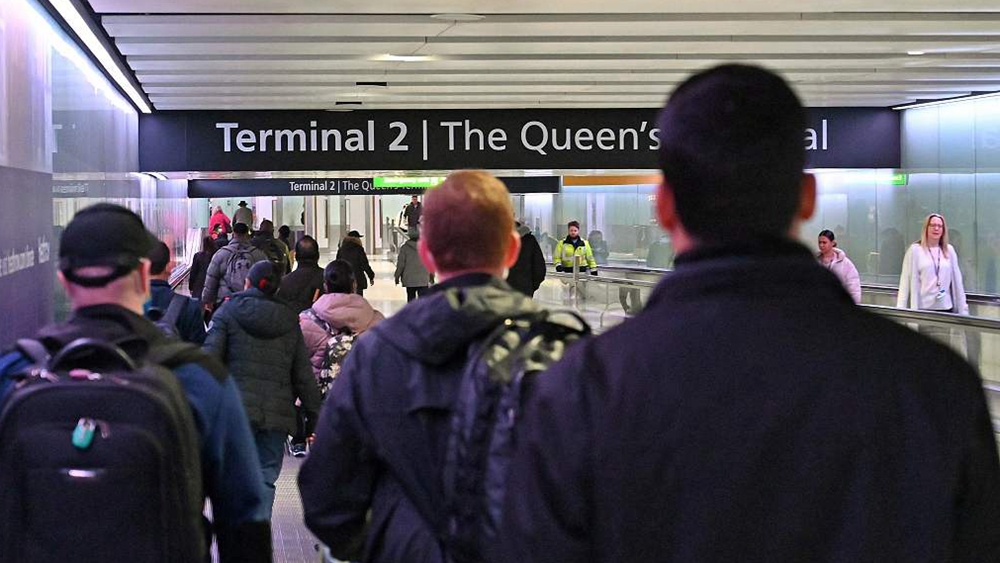

Flowers are left at the National COVID-19 Memorial Wall to remember the lives lost during the COVID-19 pandemic, in London, UK, March 23, 2022. /CFP
Flowers are left at the National COVID-19 Memorial Wall to remember the lives lost during the COVID-19 pandemic, in London, UK, March 23, 2022. /CFP
Britain is still suffering from COVID-19, though the country began to relax restrictive measures from mid-March.
The number of COVID-19 infections remains high in most of the UK, with only Scotland experiencing a drop, according to figures from the Office for National Statistics (ONS).
In the week ending April 2, an estimated 7.6 percent or one in 13 people in England was thought to have had COVID-19, ONS data revealed. And in Wales, the estimated rate was up from one in 14 people to one in 13 while in Northern Ireland the most recent estimate was one in 16.
In Scotland, about one in 13 people, down from one in 12 the previous week, was estimated to have had the virus in the week ending April 3, ONS data showed.
In total, about 169,000 people have died in the UK since the outbreak of the virus.

British Airways canceled 78 flights scheduled to land at, or take-off from, Heathrow Airport due to staff shortages caused by the COVID-19 pandemic, April 6, 2022./CFP
British Airways canceled 78 flights scheduled to land at, or take-off from, Heathrow Airport due to staff shortages caused by the COVID-19 pandemic, April 6, 2022./CFP
The resurgence of COVID-19 in the UK is putting intense pressure on hospitals and slowing economic recovery.
The ONS data showed that the hospital admission rate of COVID-19-confirmed patients in England continued to increase to 20.46 per 100,000 people in the week ending April 3, up from 20.08 per 100,000 people in the previous week.
Hospitals and ambulance services across England are under enormous strain and chiefs from the National Health System (NHS) have asked families to take in their COVID-19-positive loved ones as the health service faces a “perfect storm” fueled by heavy demand and severe staff shortages.
“If you have a loved one who is in hospital, please help staff to help get them home quickly when they are well enough – even if they are still testing positive for COVID-19,” The Guardian reported, citing Dr Derek Sandeman of the Hampshire and Isle of Wight Integrated Care System.
“The number of people with COVID-19 being cared for in hospitals across the area was 650 – more than 2.5 times higher than in early January,” said Sandeman, adding that “2,800 staff working for local NHS organizations were off sick, half of which absences were due to COVID-19.”
Dr Layla McCay, director of policy at the NHS Confederation, told The Guardian that “the situation had become so serious that all parts of the health service were now becoming weighed down.”
Besides, Deutsche Bank’s chief UK economist Sanjay Raja cautioned that the soaring COVID-19 cases will slow the UK’s economic recovery.
“Work absences are rising, and the hit to activity will likely show in the coming months,” Raja wrote in a new report.
Deutsche now predicts that the UK economy will contract by around 0.2 percent in the April-June quarter, before rebounding modestly in Q3.
(With input from agencies)